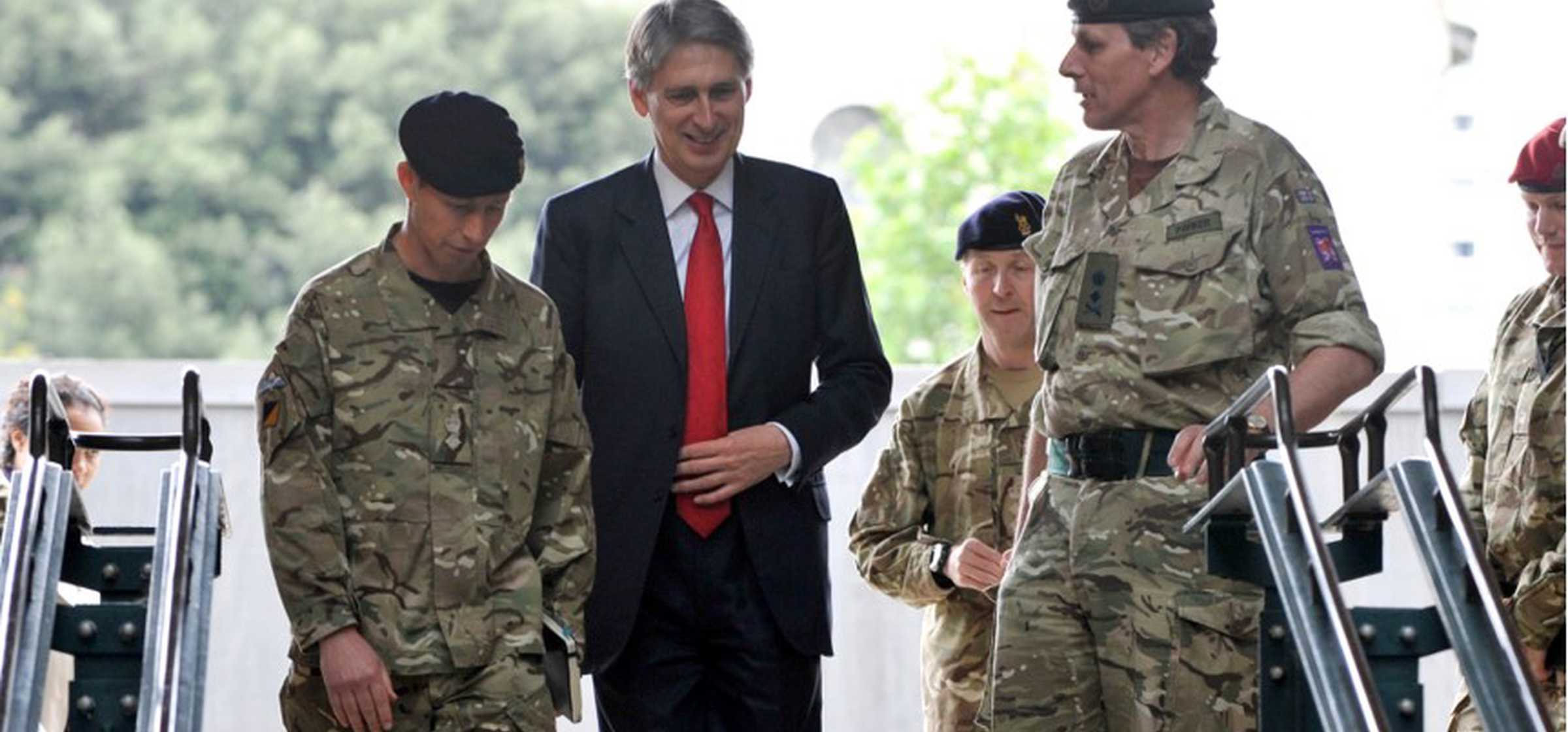General Sir Nick Parker: What the future holds for RE:ACT and the charity sector after Covid-19

Posted by Angus Tookey 14th August 2020 Interviews
Estimated Reading Time: 5 mins
General Sir Nick Parker’s career spanned 40 years in the British Army, and for the past five years has been the Chairman of RE:ACT (formerly Team Rubicon UK). During his time in the forces, Sir Nick was involved in several overseas operations including Sierra Leone, Iraq, Northern Ireland and Afghanistan.
During his time in Sierra Leone, Sir Nick served as the Joint Task Force Commander, overseeing the victory for the Sierra Leone Armed Forces over the Revolutionary United Front in 2001. In his final appointment, Sir Nick served as the Commander of military security operations at the London 2012 Olympics.
RE:ACT is a charity designed to respond to crises abroad, how different has it been carrying out operations domestically in response to the Covid-19 pandemic?
“The challenge for us is very different but our approach is the same. Ultimately, the charity is set up to get aid to the people who need it most after natural disasters. It’s correct that we’ve learned this skillset mostly during complicated overseas deployments, but our small teams of well-trained volunteers are our strength, and it is much easier to deploy them domestically.
The majority of our volunteers are ex-military but those from civilian backgrounds share common attributes: they have bucket-loads of common sense, understand how to get things done and can be deployed at a moment’s notice.
So when the Covid crisis started to emerge, we recognised that we had the capabilities and trained personnel that would be relevant to the response in the UK, both operationally and strategically. Operationally, we were able to provide resilient and agile volunteers to fill gaps and help build capacity. Strategically, we could use our experience of rapidly developing situational awareness in complex and dynamic environments to build what we call a common operating picture.
The common operating picture is a merged, single view of an often complex situation that can be shared between relevant stakeholders. It provides the information that allows organisations to make informed decisions and design a strategy for a coherent response.
What RE:ACT does best is to quickly develop that situational awareness and work in tandem with other actors to identify needs and provide solutions before they escalate into serious problems. By working with other voluntary sector organisations, such as the British Red Cross, we were able to coordinate an effective and rapid response to Covid-19, which has made a huge difference to thousands of people. Whether internationally or here in the UK, our objective is always to make a meaningful difference and prevent human suffering.”
What lessons do you think have been learned from the collaboration between the government and the third sector on a domestic emergency such as this?
“I think an important lesson to come from all this is how unfamiliar different organisations were with one another and how collaboration makes us all more resilient – plugging critical gaps in capabilities and knowledge.
Many organisations were ill-equipped to deal with the vulnerabilities and fragilities exposed by this sort of sudden, fast-moving emergency; they were designed to deal with ongoing challenges, such as homelessness and poverty, or short-term hazards, such as localised flooding.
Conversely, RE:ACT specialises in fast, dynamic emergencies. We have to be ready to respond rapidly, anywhere in the world, and bring immediate relief to those with the greatest need. Our methodology is quite different from many of the other organisations in the voluntary and community aid sector.
Our collaboration with the Voluntary and Community Sector Emergencies Partnership (VCS EP), has enabled us to understand each other's strengths and weaknesses and focus our efforts where they will have the greatest impact. RE:ACT’s capabilities are agile, forward leaning and rapid, but we are small and have limited capacity. Other charities that provide ongoing recovery and rehabilitation have structures and resources to help larger numbers of people. Together, we were able to create a synergy that ensured an effective joint response.
I believe this domestic crisis has highlighted that there is a need for an NGO that can provide a rapid reactive response – to bridge gaps and when necessary to go where others fear to tread! Whether that means the timely transportation of food, distribution of PPE, assisting supply chains under pressure, or moving bodies to the morgue; all examples of support we have provided during the Covid-19 pandemic.”

Do you think that the amalgamation of DFID and the Foreign Commonwealth Office has had an impact? Or will it in the future?
“It is still early days for the merger; I suspect that from our perspective little has changed. The international demand for a rapid reaction capability after a disaster remains as acute as it ever did. Now the challenges have increased, with the added threat of the virus, travel and the economic climate.
I recognise that charity begins at home, and there can be more reluctance to donate money that is spent overseas, although as recent fundraising for the explosion in Beirut shows, there remains a strong desire from the UK public to donate to people in need throughout the world.
When the Chancellor granted us funds to set up the charity in 2015, I think he recognised the tremendous potential of a British capability which was able to respond quickly to disasters. This was a way for the UK to contribute at a time of great need without the constraints that will often have to be placed on the Armed Forces. This need remains as relevant in a post-Covid world as it was back then, perhaps even more so.
National altruism remains a critical part of the UK culture and it’s something that we truly believe in here at RE:ACT. We need to be prepared to help and embody this culture moving forward, which is partly why we wanted to reform our brand identity.”
What was the thinking behind the rebrand to RE:ACT?
“Firstly, we would never be where we are now without Team Rubicon. They were the catalyst for this. Wherever this charity ends up, we will always respect where it has come from.
We outgrew our relationship with Team Rubicon for two reasons. The first is we don’t have the same demand for domestic responses in the UK as they do in the USA or Australia. The Team Rubicon model has been designed primarily to deal with domestic natural disasters, and aside from some regional flooding, fortunately we don’t tend to have many natural disasters in the UK that are outside the scope of our emergency services.
As a result, we have developed an overseas offering that is very specific and unique. It is now quite different from the standard Team Rubicon capability. Therefore, it made sense to brand that separately to avoid any confusion either way, ensuring both Team Rubicon and RE:ACT can operate to their own strengths.
Secondly, Team Rubicon comes from a very proud US military heritage. As we have matured as a charity, we felt the need for the culture and ethos of RE:ACT to reflect our own national values and standards. The rebrand has allowed us to renew what we stand for, and the Covid-19 crisis has become an important stimulus for that – it’s an unprecedented crisis that needed a charity like ours to bridge gaps, demonstrating our unique qualities and how valuable we can be domestically, as well as internationally.”
What does the future hold for RE:ACT?
“We have a great opportunity now to develop the charity further, consolidating what we have learned so far. We can focus on building an essential and necessary service both at home and abroad. My vision is that one day, people will view RE:ACT in the same way as the RNLI, seen as something necessary, that is respected and well-conducted; the expert in its field, filling a niche with great professionalism and a base of amazing, action-oriented volunteers.”
